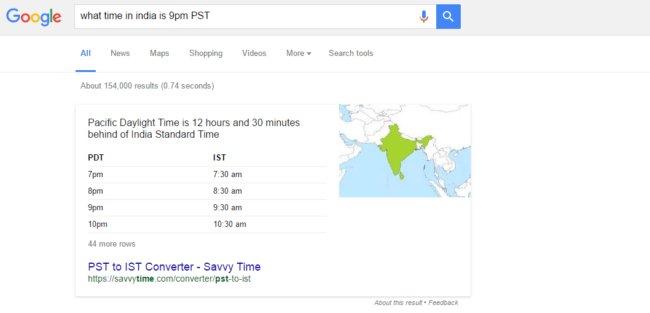
There I was, sitting at a table outside under an umbrella in Mexico, looking over the infinity pool to the Pacific Ocean. I was drinking a cold Pacifico beer and eating some delicious tacos. At that moment though, my mind was far away from Mexico. I missed my wife and dog.
Part of the lure of being a freelancer is the ability to work from wherever there is an available Internet connection. I’ll be honest that I love this about working for myself. On any given day I might be on my couch, at my favorite coffee shop/cafe, or in another country.
Sure, it sounds sexy. But working from home, a coffee shop, or another country has very real challenges.
Here are the challenges I’ve found through my travels working remotely.
Table of Contents
Internet connection
You probably take it for granted at home or your current cubicle – fast Internet is almost ubiquitous in the United States, UK, and other first world countries. But go outside of these countries (or even to your local coffee shop) and you may quickly find that a sustainable Internet connection becomes difficult.
As Jonas Ellison said here during his post about writing every day for a year, it can be hard to find a connection some places:
But the problem was, there was no WiFi where we were in the Alps (silly Swiss). I didn’t even have 4G… I woke up after our first night’s stay at sunrise before everyone else (as usual) just to be able to honestly tell my readers, once we’d returned to civilization, that I’d not missed a day — that I’d earnestly written this post, but could not share it with them. I wrote the post on my iPhone ‘note’ app. And somehow, just like that, my phone was graced by the Swiss gods above with two bars of cell reception. Just like that, a beam of telecommunication had shot over the alps and showered my cell phone in its glory. I was able to keep my obligation, stay true to my mission, and post.
On my recent trip to Mexico for #credocamp, we were told again and again that our AirBNB that we rented within a nice resort would have a solid Internet connection. It was enough to do some emails and make some phone calls (next section) as long as we were in the right location and didn’t have all of our devices connected, but it was far from fast and kept some of us from doing some things we needed to do.
Your Internet connection will not always be solid, and you will have to search for decent connectivity sometimes. You may endure dirty looks from Swiss bartenders or end up drinking way too much caffeine in order to stay in a coffee shop to work a bit more, but that’s the price we pay for living where and how we want.
Phone connection
Alongside a difficult Internet connection at times, if you live abroad you may also experience less-than-stellar phone connections. With travel comes experience dealing with this and you learn how to use different SIM cards to make a connection, but these fees can sometimes be exorbitant and data amounts and availabilities are often not as large as in other countries.
Sometimes the best option for communicating with overseas clients, business associates, or family is via Skype or Google Hangouts. Recently, I’ve come to use WhatsApp over the others because it works seamlessly even on a thin Internet connection (see – Mexico trip) and also easily lets you text others in other countries, which is amazing when you travel a lot and know people all over the world.
Time zones
Time zones can be a killer to productivity for many reasons – namely jetlag and scheduling meetings in time zones different from your own. Especially when you’ve arrived in a new time zone, figuring out your work schedule and how it fits with the work schedules of people in other time zones can be especially disorienting and frustrating. I know I’ve almost given up in frustration at this a few times.
One of our favorite companies, Buffer, has written multiple posts about how their working styles have evolved over time as their teams have grown and are located across pretty much every time zone. A few tools that they mention are Every Time Zone and World Time Buddy to help you get a handle on time zones other places. And there is always good old Google:

A final trick is to use Calendly to have others schedule meetings with you. Within Calendly you can control when you are available and not (for example, I am only available 8am-12pm PST unless it’s a super important meeting that I propose the time), so no matter their time zone you can simply tell them “Grab some time on my calendar” and abdicate the responsibility to them.
Isolation
Travel can be lonely and isolating. Some of my darkest days in life have been while traveling alone.
Then again, traveling alone can be very liberating and open up whole new worlds and experiences to you. Some of my best days in life have been while traveling alone through Europe, especially Ireland, the UK, and Italy.
While many try to profit off the rise in “digital nomads”, there has been a rise in recent years of actual digital nomads warning others about the very real struggles that come from living a life constantly on the move. Some of them find others to travel with from place to place, or make their travel plans around where their friends are currently setting up their offices. Others travel with their spouse/significant other or join something like Remote Year.
Always remember that much like moving anywhere new, you should expect a period of transition to get to know the local country and customs. Don’t expect the country to be like your own, but rather expect it to be different and add richness to your life should you choose to take part in it (and I recommend that you do!).
Some ways to deal with isolation include:
- Going outside of your comfort zone to connect with others
- Use sites like NomadList.com to find who the other digital nomads in are in the same city as you
- Have consistent calls back home to your family and loved ones
Distraction
Along with the above, inexperienced digital nomads have sometimes found themselves being distracted by the local customs or options and thus not actually getting work done.
Now, part of living the digital nomad lifestyle is becoming familiar with other cultures/customs and seeing all that there is to see. But, when this starts to distract you from your real work you need to start asking what your true priorities are.
My best suggestion for getting plenty of work done and still getting to enjoy the amazing cultures you are visiting? Keep the same work schedule, as much as possible, no matter where you are. Weekends are two days long for a reason and plenty of time to go do awesome things where you are.
I asked Mike Arnesen of UpBuild about his experiences traveling the country and working while running his own marketing agency. He gave this bit of advice:
Another thing that was instrumental in making my digital nomad experiment a success was tracking my time and setting a goal each week. You have to be flexible when living and working this way. Some days you’ll put in 12+ hours of solid work and others you’ll have terrible connectivity, your dog will get sick, and your AirBnB host will cancel on you last minute and then that becomes your day. Setting a weekly goal was super important for me to feel like I was getting enough done (but of course you have to take work quality into account in addition to quantity). I set 30 hours per week as my goal and I usually exceeded that, but I actually find that when I’m traveling, I get equivalent or better work done on ~30 hours per week than when I’m back home on ~50. Nothing like being in an exciting new city to remind you why you need to focus on what’ll produce the biggest impact with the limited time you have.
By keeping the same schedule abroad as at home, your body will have a chance to settle in and you’ll get your bearings far faster. After all, unless you’re 22 and your body can handle it, you really can’t expect to go out every night and have a great time and then be as productive as possible the next day. So pace yourself and don’t give into the FOMO (Fear Of Missing Out), which is often the true source of distraction.
After all – you’re a traveler! You can always go back places and see different things.
So Is Remote For You?
Remote working isn’t for everyone. I know myself well enough to know that I probably would not do well traveling and working by myself. I need a community, so if I was able to move somewhere for 3-6 months and get established and make friends, I’d likely do that.
Others thrive off of it. One guy built 12 startups/app in 12 months while remote. So you can do a ton if you have the right mindset and tools.
What about you? Would you work remotely? Why/why not?

